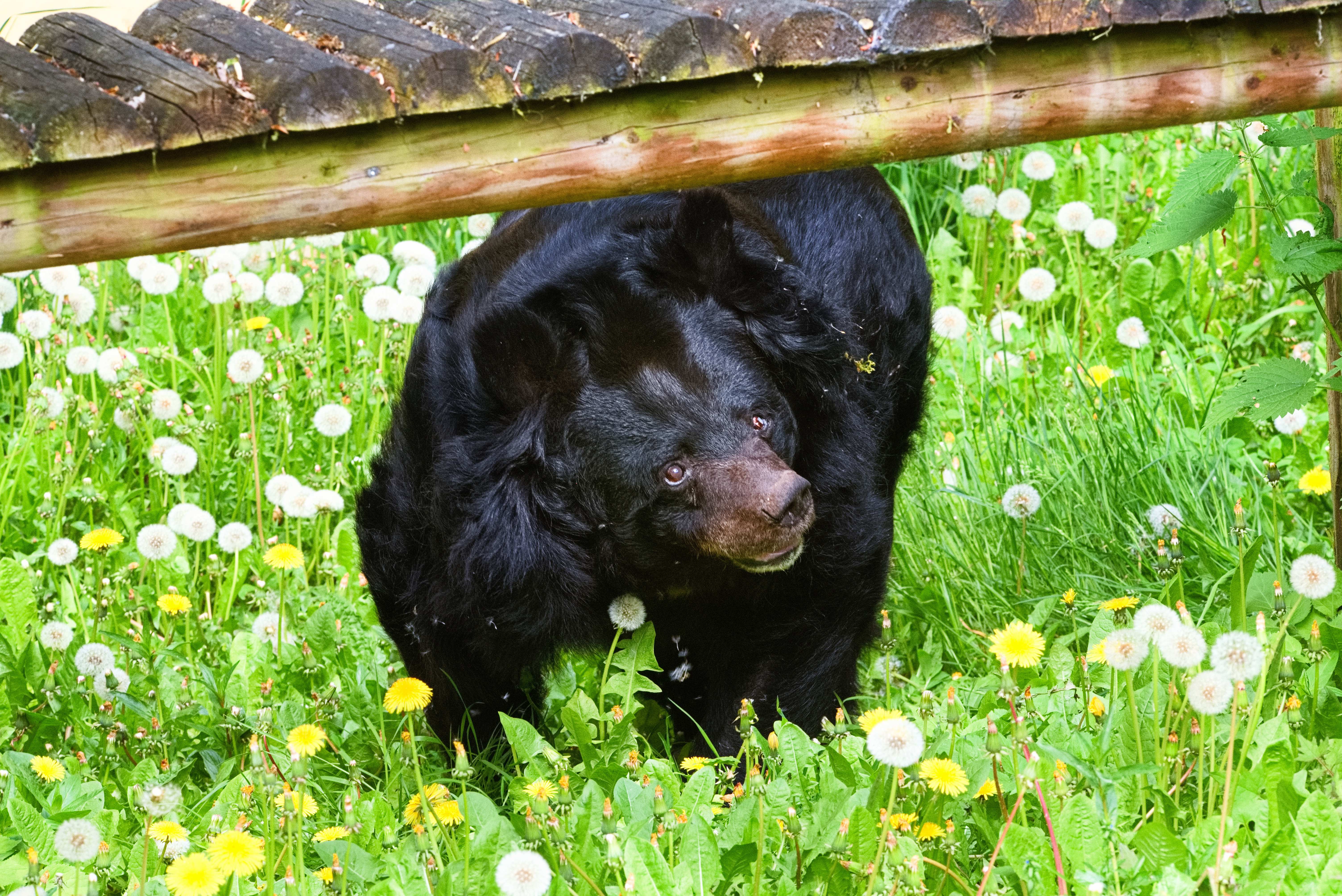
Thirty-eight-year-old Asiatic black bear, Inca, was an incredible ambassador to her species.
At the time of her death earlier this year, Inca was the titleholder of the oldest known moon bear in Europe, having outlived the typical life expectancy of her kind by more than a decade.
The much loved old lady is continuing to do remarkable things for the conservation and welfare of bears after the zoo revealed her remains were requested by the Department of Natural Sciences at the National Museums Scotland, to join 10 million specimens preserved for research purposes. Principal Curator of Vertebrates at the Department of Natural Sciences, Dr Andrew Kitchener, said:
“Our collections are visited by researchers from all around the world and we can never guess how they might want to use the preserved animals.
“We greatly appreciate receiving Inca and indeed we would be delighted to preserve even more specimens for their important role in research that benefits the conservation, welfare and health of wild and captive animals.”
Her skin and skeleton have been retained, alongside a sample of muscle tissue which has been added to a UK network of zoological biobanks, so researchers from around the globe can extract DNA and examine pathogens.
Fascinatingly, her larynx has also been preserved and sent on loan to Vienna University as part of a long-standing collaboration looking at the variety and functioning of mammalian larynges.
Inca will also form part of a new research project looking at the evolution of teeth, jaws and guts among carnivorous mammals as well as featuring in a bear study on skeletal diseases in captive mammals, which is being carried out in collaboration with a retired orthopedic surgeon.
DZG Curator Richard Brown, added: “Inca was very special to DZG and we were overwhelmed with the hundreds of kind messages we received following her passing.
“We are very proud she is now able to be part of such important projects, which only reinforces the zoo’s commitment to education and research.”












Comments
Add a comment